October 11, 2019
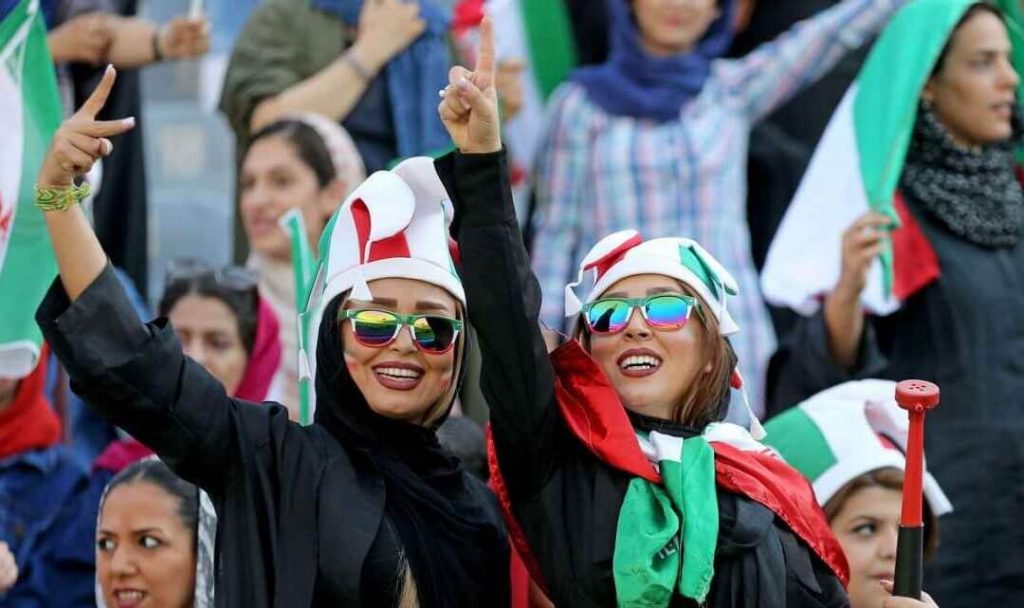
Weekly Report 11 October, 2019

Myanmar Investments International, a London-based firm, has pulled its foreign investments from Myanmar amid instability and conflict in the Rakhine region. One of several investors to withdraw from Myanmar since 2017, MII’s move represents the lack of confidence in the country’s future. In addition to the fallout from the Rakhine conflict, former investors have cited Myanmar’s fragile domestic banking system as grounds for withdrawal. Foreign investment is expected to drop significantly in the coming months and years as Myanmar becomes further enveloped in civil unrest.
This Week, 30 Rohingya Muslims were arrested in Myanmar while trying to travel from Rakhine State to the city of Yangon without official travel documents. According to Human Rights Watch, police arrested the group of Rohingya and sentenced 21 of them to two years in prison, while eight children were sent to a child detention center. The youngest, a five-year-old, is being held in prison with his mother. This incident is an addition to a long list of discriminatory arrests that target Rohingya in Myanmar, inhibiting their freedom of movement.

This Monday, Cambodian Prime Minister Hun Sen threatened to deploy the military if opposition leaders from the dissolved CNRP return next month, as he would consider it an attempted coup. Specifically, opposition Sam Rainsy is expected to return to the country following his self-exile. Rainsy has repeatedly called for a revolution due to Hun Sen’s abuse of power and unwillingness to hold free and fair elections. This Monday, the Prime Minister ordered police forced to “Attack wherever [supporters] are seen, there is no need to wait for an arrest warrant or not”. In 2019 alone, over 30 activists have been accused of plotting to overthrow the government, and were subsequently arrested.
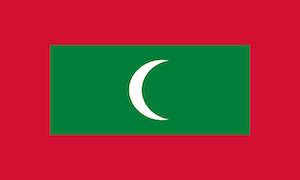
Maldivian President Ibrahim Mohamed Solih criticized a report made by the Maldivian Democracy Network (MDN). The NGO published a report on human rights in the Maldives, which was accused of “mocking” Islam. Because of the large criticism the report received, MDN removed the report, apologized and vowed “to revise the report with the help of religious scholars” to ensure religious sensitivity. Responding to the MDN’s report, MP Mohamed Nasheed Abdulla brought forth a motion in parliament, which called for “‘eradication’ of secularist or ‘irreligious’ people, ‘rainbow-colored people’, and advocates of gender equality.” The proposed motion provoked outrage among Maldivian human rights activists who largely criticize the motion.
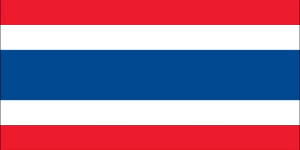
Following the acquittal of 5 Muslim men on murder charges, Yala Province Cheif judge Kanakorn Pianchana delivered an impassioned speech against corruption in the Thai judicial system, and then shot himself in the courtroom. Alleging that he had been pressured to find the men guilty despite lack of credible evidence, Pianchana stated that the Thai court system was neither transparent nor just. Following the suicide attempt, the judicial commission announced this week that an independent inquiry into the case will be launched in the next two weeks.

Vietnamese activist Nguyen Quoc Duc Vuong was arrested in late September for criticizing the Communist government on social media. This week, Human Rights Watch reported that Vuong is being held under conditions “conducive to mistreatment or torture”. Police arrested Vuong on charges of “making, storing, disseminating or propagandizing information, materials and products that aim to oppose the State of the Socialist Republic of Vietnam,” under article 117 of the country’s penal code. Vuong’s arrest represents challenges to freedom of expression in Vietnam as well as the Vietnamese government’s extreme efforts to censor online material. According to Human Rights Watch, Vuong’s arrest is part of a crackdown against critics and pro-democracy campaigners. During the first nine months of 2019, the Vietnamese authorities convicted at least 11 people for criticizing the government.

Following nuclear talks between the U.S. and North Korea earlier this week in Stockholm, North Korean officials have cast doubt on peace relations, stating that the “negotiations have not fulfilled out expectations”. This Thursday, a North Korean Foreign Ministry spokesperson further noted that the Communist state might reverse steps to build trust with the United States, following an inflammatory appeal from the UN Security Council. On Tuesday, the Council called for North Korea to “take concrete steps” to cease its nuclear weapons and ballistic missiles development in a meaningful, measurable and irreversible way. The spokesperson noted that the Council appeal, largely representative of U.S. interests, undermines the peace-building process between the two countries and unjustly questions North Korea’s right to self-defense.

This weekend, protests in Hong Kong saw a sharp increase in violence, which led Hong Kong leader, Karrie Lam, to announce that “the protests were no longer ‘a peaceful movement for democracy.’” The announcement comes after thousands of protesters violated Hong Kong’s latest ban on wearing face masks. Lam argued that if the violence continues, she will have no choice but to ask China to step in. China desperately wants to stop the Hong Kong protests, because of the political threat they pose to Chinese President Xi Jinping.
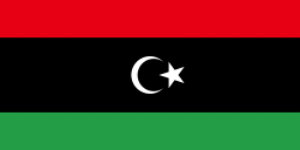
This Sunday, a boat leaving from Libya capsized carrying approximately 50 people attempting to reach Italy and seek asylum. 22 of the 50 migrants were rescued by Italian authorities, while 13 women died and 8 children went missing during the incident. These numbers contribute to the growing number of migrants and refugees attempting to reach Italy from North Africa by sea and highlights the dangers of doing so. Last month alone, approximately 2,500 migrants and refugees coming from North Africa arrived in Italy: a figure that does not account for the individuals who have died when attempting the perilous journey. Since 2013, 20,000 migrants and refugees have died in their attempt to reach Europe.

Al Jazeera’s Hiba Morgan released a short video documentary on daily life for residents in Nyala, Sudan. In the documentary a Nyala student accounts a protests two weeks ago led by school children. This protest sparked after the school released its students early because of a shortage in bread. During the protest, soldiers fired tear gas and live ammunition at the students. One of the bullets struck the interviewees’ foot and at least six other people were injured during the two-day protest.
The protest may have been sparked because of bread shortages, however this was not the only matter being protested. Many residents in Nyala have yet to see changes after the transitional power-sharing deal implemented more than six weeks ago. For example, state governors appointed by the previous president, Omar al-Bashir, have yet to be dismissed and replaced. Some argue the notion that these state governors have not been dismissed symbolizes how the old regime has yet to be overturned.

Iranian women for the first time were allowed to attend the World Cup qualifier match against Cambodia on Thursday, October 10th. The lift on Iran’s ban on women attending football matches came after a 29-year-old woman, Sahar Khodayari, set herself on fire outside a Tehran court in protest of the ban. Khodayari died from her injuries, which sparked domestic and international pressure on Iran to lift the ban. Although Thursday’s game only allocated 5% of the stadium to female fans, activists regarded the partial lift as the “first official step forward.” Concerns regarding the women attendees safety during the match were raised, but failed to discourage female fans from attending. For female football fans, the excitement of attending Thursday’s match overweighed fears of potential safety. In fact, the first 850 tickets released to women were sold out in minutes.
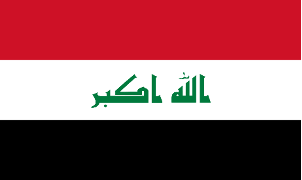
This Thursday, Iraq’s Prime Minister has announced three days of mourning in tribute to demonstrators killed in recent anti-government and anti-corruption protests. 110 deaths and thousands of injuries have been confirmed in Baghdad as well as other cities across the country. Curfews and internet blackouts are still in effect across Iraq as the government attempts to quell the protests. Multiple reports have emerged that news stations and journalists have been targeted by Iraqi security forces, which activists view as a broad effort to suppress the media. So far, Iraq’s army has admitted to the use of “excessive force” against protesters in al-Sadr district, according to a statement posted to the Iraqi state security Facebook page on Monday.

This Wednesday, electricity prices increased for the second time within three months; tariffs on electricity have raised by 320%. Rises in the price of electricity coincides with last week’s steep price increases in fuel and basic goods. The government, in an effort to reinvigorate the Zimdollar, banned “the use of foreign currencies in local transactions”. However, this effort largely failed. Initial hopes that Mnangagwa would rebound Zimbabwe’s economy after Robert Mugabe have dwindled. In response to critics, Mnangagwa called on Zimbabweans to allow time and patience for Zimbabwe’s economy to rebound.

The Trump administration’s tough sanctions on Cuba are deterring Western firms from operating and investing in the country. After sanctioning almost “200 Cuban military-run companies and hotels as well as any company or vessel involved with shipping Venezuelan oil to Cuba,” Western firms worry their investment may lead to reactionary US sanctions. They reason that investing in Cuba is not worth its costs. President of the US-Cuba Trade and Economic Council, John Kavulich, equated US financial sanctions to weapons of mass destruction, while Cuban Foreign Minister, Bruno Rodriguez, called the sanctions “genocidal” . Cuba is now facing trouble in financing their sugar harvest, venture projects are finding it almost “impossible to obtain private credit,” and Cuban embassies abroad are hindered in their ability to open accounts.

Venezuela is projected to lose ownership of Citgo this month, unless the U.S. Treasury Department intervenes. The Venezuelan government is expected to default on a $913 million bond issue payment due on October 27th, meaning that bondholders could seize the 50.1% of Citgo shares that President Nicolas Maduro formerly placed as collateral for the bond issue. However, such recourse in the case of payment default is only possible with a special license from the U.S. Treasury Department, which was granted to Interim President Juan Guaido earlier this year. With the revocation of the special license, Guaido could maintain ownership of Citgo.
Crude oil suspected to be from a Venezuelan spill has contaminated hundreds of miles of Brazilian beaches, a crisis that is likely to further strain relations between the two countries. Though the original spill occurred over a month ago, Brazil’s Environment Minister Ricardo Salles asserted on Wednesday that the oil is “very likely from Venezuela”, which will almost certainly escalate tensions in the coming days.

After more than a year in exile, university student leader Lesther Aleman returned to Nicaragua on Monday from the United States despite running a “very high risk” by returning. Aleman rose to prominence as a student activist when he interrupted a speech by Daniel Ortega at the beginning of the first national dialogue in May of 2018, and demanded that he order the cessation of repression. At the time, more than 50 people had been killed in anti-corruption protests, many of them being students. The Inter-American Commission on Human Rights reports today that 328 people were ultimately killed, hundreds arrested and at least 70,000 fled into exile.
This week, one of Nicaragua’s oldest newspapers, “Nuevo Diario,” shut down this week due to extreme economic strain and the challenging environment for journalists in the Central American country. This announcement follows a decision made this week by the Nicaraguan government to not return “Noticias TV”, a private station seized last December, to its owners. The Nicaraguan government alleged that the station incited anti-government violence, orchestrated by the station’s director Miguel Mora and news director Lucía Pineda. Both Mora and Pineda were arrested for 6 months and investigated for involvement in a “failed coup attempt.
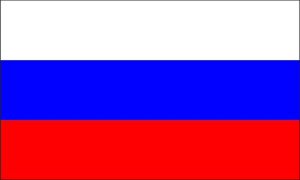
This Wednesday, Russia labeled Mr. Navalny’s Anti-Corruption Foundation (FBK) a “foreign agent”, implying that the foundation is accepting international funds and spies for foreign governments. Navalny responded to the labeling by stating that the group is funded “exclusively by Russian citizens.” He urged the government to “publicly prove” that his organization is accepting international funds before placing a label on them. FBK spokeswomen Kira Yarmysh shared that the government’s decision for labeling FBK was meant to “put pressure on [them] and attempt to stop [their] activity.” FBK has become Putin’s primary critic and a threat to the Kremlin. Just as Navalny was barred from the 2018 presidential elections, labeling FBK a foreign agent is just “another attempt to suffocate” FBK and block criticism of the Kremlin.

On Monday, President Trump called for the withdrawal of American troops from Syria’s border with Turkey, despite appeals from Republicans Congress members, the State Department, and the international community. The withdrawal allowed for Turkish forces to invade Northeastern Syria this week in an attempt to eliminate Kurdish strongholds along the Turkish-Syrian border, and establish a safe-zone for the return of Syrian refugees currently residing in Turkey. The move is projected to be disastrous for the Kurdish-led Syrian Democratic forces, who are both allies to the U.S. and instrumental in containing IS fighters in Northeastern Syria. Though President Trump threatened to devastate the Turkish economy in case of an escalated attack against the Kurds, he implied in a tweet that mediation was his preferred solution.
A Trump Administration spokesperson announced this week that the White House will not cooperate with the impending impeachment investigation into President Trump’s interactions with Ukrainian officials.
At least 11 people have been killed in Northeastern Syria as the Turkish offensive against the Syrian Democratic Forces, a Kurdish-led resistance force, enters its third day. Tens of thousands of civilians have fled their homes as attacks have escalated, prompting widespread criticism from the international community. The fighting between the SDF and Turkish forces is concentrated around the two border towns of Ras al-Ain and Tal Abyad. The SDF has responded to the attacks by shelling nearby Turkish border towns, resulting in at least five casualties.